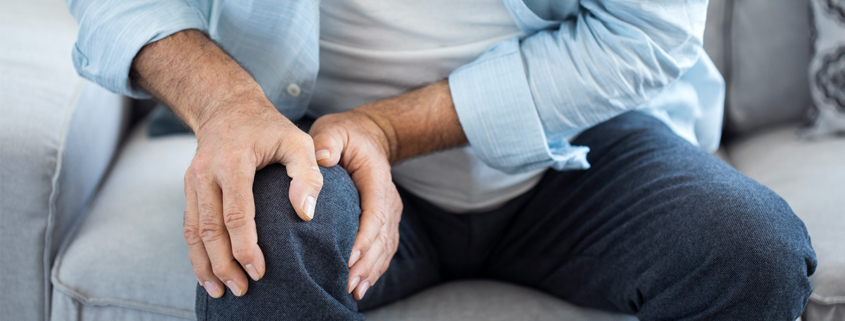Joints Hurt? Here Are a Few Reasons Why
Do your knees pop when you stand up? Or do your joints hurt when you wake up in the morning?
We see this complaint all too often at our clinic. Our patients aren’t living life to the fullest because it’s difficult to get up and get moving.
If this sounds like you, there are several reasons why you’re experiencing pain, stiffness, tenderness, or swelling in your joints. Here are the 5 most common reasons we come across every day.
Why Do Your Joints Hurt?
Osteoarthritis
Osteoarthritis is the most common form of degenerative joint pain. When you age, the cushion between your joints, called the cartilage, begins to wear down. Your bones to rub together, triggering pain, tenderness, stiffness, and swelling.
While this mostly affects people who are middle-aged or older, you can be at a higher risk if you’re obese or overuse a joint due to sports or intense exercise. Over-the-counter pain relievers, braces, and gentle exercise can reduce symptoms and help you maintain an active lifestyle.
Rheumatoid Arthritis
An autoimmune disorder, rheumatoid arthritis also affects the joints, but for a different reason. Your immune system mistakenly attacks your body’s tissues and affects the lining of your joints. This causes painful swelling, inflammation, bone erosion, and joint deformity.
People usually feel symptoms in their smaller joints first, for example, the fingers and toes. And then as the disease progresses, pain and inflammation can spread to wrists, knees, elbows, etc.
You may feel pain more frequently in the morning or after you’ve been resting; however, symptoms can also last all day. While it may seem difficult to get moving, gentle exercise can help you maintain your strength and flexibility.
Vitamin D Deficiency
Nicknamed the “sunshine vitamin,” vitamin D is considered a pro-hormone and not a vitamin because it can be synthesized when sunlight hits the skin. So, if you needed another reason to head to the beach, here’s your sign.
Either way, it plays a vital role in many functions of your body, particularly bone health. In fact, research shows low levels of vitamin D can increase the risk of arthritis. And studies found low blood levels of vitamin D in patients who have osteoarthritis of the hip and knee.
If you want to improve symptoms of arthritis or your overall health, increase your sun exposure or consider a supplement.
Hypothyroidism
Hypothyroidism indicates an underactive thyroid gland. Due to an autoimmune disease, radiation treatment, or surgical removal of the thyroid, your body isn’t getting enough of the hormone. Your thyroid, which is located in the lower front of your neck, produces hormones that help your body use energy, stay warm, and keep organs working as they should.
Approximately, 10 million Americans have this condition, but It’s more common in women who are over the age of 50. You may experience swelling in certain joints, joint pain, stiffness, and carpal tunnel syndrome. But, symptoms also include fatigue, weight gain, and decreased libido.
Hypothyroidism is diagnosed with a blood test and treatable. Thyroid hormone replacement is the best treatment, but pain relievers, like ibuprofen, can help relieve some pain.
Fibromyalgia
Fibromyalgia is a chronic pain disorder, often triggered by emotional or physical stress. It affects the muscles and soft tissues and causes pain and tenderness to touch, sometimes over the entire body. It affects 2-4% of people, most of whom are women.
There’s no test to detect fibromyalgia, but it has shown to be genetic. Symptoms include sleep disturbances, fatigue, muscle pain and aches, and pain in the joints. While there’s no cure, medication, cognitive behavioral therapies, and gentle exercise can help relieve symptoms.
Osteoarthritis, rheumatoid arthritis, vitamin D deficiency, hypothyroidism, and fibromyalgia are four potential reasons your joints count hurt, but there are many more possibilities.
While this will help you ask your doctor the right questions, we suggest scheduling a consultation to explore all the possibilities. To learn more about the benefits of hormone replacement therapy, check out our recent article here.

